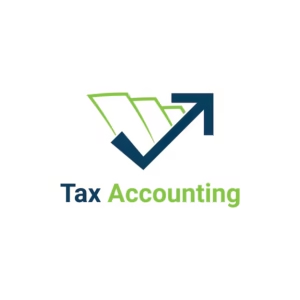Running a business in the UAE comes with opportunities, but also responsibilities. One major concern for business owners is staying compliant with Corporate Tax Registration & Return Filing rules. Missing deadlines or making mistakes can result in heavy penalties, creating stress for companies already managing operations. However, there is a simple way to stay compliant—understanding the registration process, filing obligations, and key deadlines. By following proper steps, businesses can save time, reduce risks, and ensure smooth operations without tax-related disruptions. This guide breaks down everything you need to know, from eligibility to filing, so you can meet obligations confidently.
Why Corporate Tax Registration & Return Filing Matters
Corporate tax is not just another financial requirement—it is a legal obligation for companies operating in the UAE. The Federal Tax Authority (FTA) requires businesses to register and file returns within specific deadlines. Failing to comply may lead to administrative penalties, additional costs, and even business restrictions.
Furthermore, proper Corporate Tax Registration & Return Filing helps businesses build credibility with investors, banks, and stakeholders. A company with transparent taxation records often enjoys smoother financial relationships. For new and small businesses, timely compliance also reduces future complications when expanding operations.
Who Needs to Register for Corporate Tax?
Not all businesses in the UAE are required to pay corporate tax, but many must register. According to FTA regulations, companies that exceed the taxable income threshold must complete Corporate Tax Registration & Return Filing.
Some categories include:
- Mainland companies exceeding the taxable profit limit.
- Free zone entities engaged in business with mainland operations.
- Multinational corporations subject to international taxation standards.
- Branches of foreign companies operating in the UAE.
Even if your business qualifies for exemptions, registration may still be required. Therefore, it is crucial to assess your company’s income and activities before assuming you are exempt.
Step-by-Step Process for Corporate Tax Registration
Registering for corporate tax involves multiple steps. While the process is straightforward, businesses must ensure accuracy when submitting details.
- Create an account on the FTA portal – Businesses need to sign up and provide legal documents.
- Submit company details – Trade license, incorporation certificates, and shareholder details are required.
- Provide financial records – Annual accounts, revenue, and expense details must be included.
- Await FTA confirmation – Once approved, the business receives a Tax Registration Number (TRN).
Completing registration correctly avoids delays in Corporate Tax Registration & Return Filing later. It is recommended to keep digital copies of all documents for faster submission.
Key Deadlines for Return Filing
Filing corporate tax returns must be done within deadlines to avoid penalties. Typically, the return is due within nine months after the end of the financial year.
For example:
- If your financial year ends in December 2025, your filing deadline is September 2026.
- Late submissions may result in fines, even if no tax is due.
Timely Corporate Tax Registration & Return Filing ensures compliance and avoids unnecessary costs. Setting reminders and working with advisors can help businesses meet all due dates without last-minute stress.
Documents Required for Return Filing
To file returns, businesses must gather accurate records. Missing documents may delay filing or trigger compliance issues.
Required documents include:
- Audited financial statements
- Revenue and expense reports
- Bank account details
- Tax registration number (TRN)
- Previous return filings, if any
Submitting correct documents ensures smooth Corporate Tax Registration & Return Filing and protects your company from unwanted audits or rejections.
Penalties for Non-Compliance
The UAE FTA imposes strict penalties for businesses failing to register or file returns.
Some common penalties include:
- Delayed registration fines
- Late filing penalties
- Incorrect or incomplete return submission charges
- Additional administrative fines
These penalties are designed to encourage compliance. Businesses that plan ahead for Corporate Tax Registration & Return Filing avoid fines while ensuring financial stability.
Common Challenges Businesses Face
Many companies struggle with compliance due to:
- Lack of awareness about rules
- Complex documentation requirements
- Limited in-house tax expertise
- Misunderstanding filing deadlines
However, these challenges can be managed with proper planning and professional support. Partnering with a tax advisor helps businesses handle Corporate Tax Registration & Return Filing more effectively.
Best Practices for Smooth Corporate Tax Filing
Businesses can reduce stress and ensure compliance by following best practices:
- Maintain organized financial records throughout the year
- Use accounting software to track income and expenses
- Consult tax experts for accurate filing
- Set internal deadlines ahead of official FTA deadlines
These measures ensure timely Corporate Tax Registration & Return Filing, avoiding last-minute complications.
The Role of Professional Tax Advisors
While companies can register and file returns independently, professional advisors make the process easier. Advisors:
- Assess your eligibility for registration
- Assist in preparing accurate documents
- Guide you through filing returns
- Help reduce taxation risks and penalties
Working with a tax professional ensures businesses meet obligations confidently and focus on growth instead of compliance worries.
Conclusion
Corporate Tax Registration & Return Filing is a legal responsibility for businesses in the UAE. Understanding the process, gathering required documents, and meeting deadlines ensures compliance while avoiding penalties. Challenges like complex requirements and limited expertise can be resolved with proper planning and professional support. Ultimately, smooth compliance not only saves money but also strengthens a company’s reputation and financial standing.







